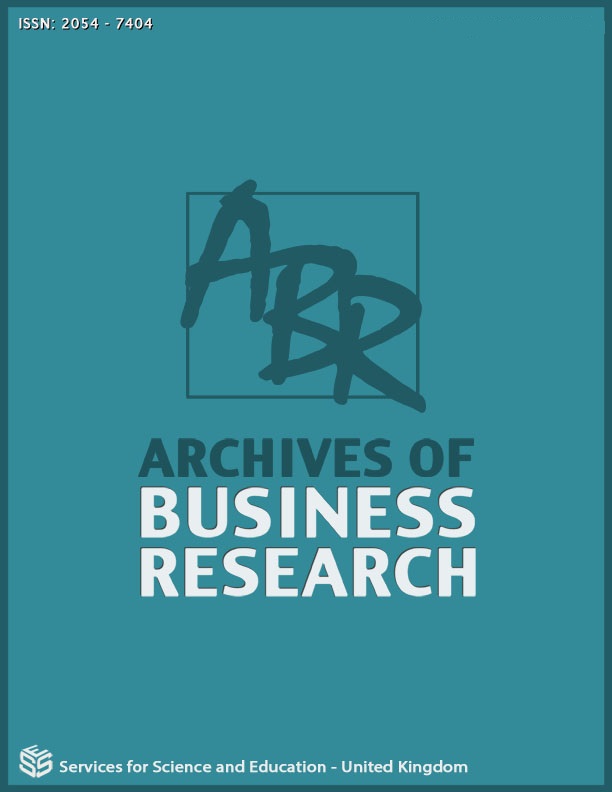Education as Economic Investment: Comments on Tuition Fee Policy in Private Universities in Bangladesh
DOI:
https://doi.org/10.14738/abr.1012.13104Keywords:
Accessibility, admissions, bursaries, fees, funding, loans, tuition, universityAbstract
Student fees for university programmes in Bangladesh have risen dramatically in recent years. This has been justified by the argument that such increases offer no economic disincentive to students seeking university admission. The present essay comments on that argument and finds several weaknesses in it. Fee increases may still be necessary, but this argument at least does not establish that they are innocuous.
References
Alam, G. M. (2008). The Role of Technical and Vocational Education in National Development of Bangladesh. Asia Pacific Journal of Cooperative Education. 9(1), 25-44.
Alam G. M. (2007). Private HE in Bangladesh: the impact on HE governance & legislation, Ph.D Thesis, School of Education, University of Nottingham, UK.
Altbach, P. (1999). Private Higher Education: Themes and Variation in Comparative Perspective. Prospects, XXIX (III), 311-323
Kivinen, O & Ahola, S. (1999). Higher education as human risk capital. Higher education. 38(2), 191-208.
Lockheed, M. and Jimenez, E. (1994). Public and private secondary school in developing countries: What are the differences and why do they persist? Education and Social Policy Department, World Bank, July 1994, ESP Discussion paper 33.
Mabizela, M. (2000). Private higher education in South Africa: A sing of the times. Seminar paper presented to the faculty of education at UWC. June 17-21, 2000.
Natshoe, I. M. (2004). Higher education and training policy and practice in South Africa: impacts of global privatization, quasi-marketisation and new managerialism. International Journal of Educational Development, 24(2), 137-154.
Nigam, N. C. (1992). Private initiative in professional education. Journal of higher Education (India), 16(1) 104-108.
Oketch, O. M. (2004). The emergences of private university education in Kenya: Trends, prospects, and challenges. International Journal of Educational development, 24(2), 119-136.
Ping, C. and Crowley, S. (1997). Education ideologies sand national development needs: the African University in Namibia. Higher Education, 33, 381- 396.
Psacharopulos, G. and Patrions, A. H. (2002). Returns to investment in Education: A further update. Policy research working paper, 2881, Latin America and the Caribbean Region, Education Sector Unit, The World Bank.
Rose, P. (2002) Is the Non-State Sector Serving the Needs of the Poor: Evidence from East and Southern Africa, DFID, London and World Bank, Washington DC (accessed on 7th November 2003, doi: http://www.ids.ac.uk/ids/govern/pdfs/roseWDR.pdf)
Rose, D. C. and Sorensen, R. L. (1992). High Tuition, Financial Aid, and Cross-Subsidization: Do Needy Students Really Benefit? Southern Economic Journal, 59(1), 66-76.
Shin, H. (1990). What is the problem of the new private school law? Daehak Gyoyuck, 45, 75-80.
Tan, A. M. (2002). Malaysian Private Higher Education: Globalization, Privatization, Transformation and Marketplace. Asian Academic Press, London.
Thomson, A. R. (1981). Education and Development in Africa. Macmillan, Hong Kong.
Tilak B.G. J. (1999). Emerging and Evolving Public Polices in India In Altbach, G. P. (Eds.) Private Prometheus: Private Higher Education and Development in the 21st Century. Greenwood, Press, Westport, Connecticut. London.
World Bank (1995). Priorities and Strategies for Education: A World Bank Review, World Bank, Washington D.C.
Woodhall, M. (1982). Student loan: Lessons from recent international experience. Policy Studies Institution, London.
Zumeta, W. M. (1992). State policies and private higher education: policies, correlates and linkages. Higher Education, 4(63), 363-417.
Downloads
Published
How to Cite
Issue
Section
License
Copyright (c) 2022 Wazedul Haque, Murad Hasan, Mohammad Tamzid, Alamgir Hossain, Tuhin Akter, Sazib Miah, Touhidul Islam Talukdar, A. H. M. Karmuzzaman, Mahmudur Rahman, Kariul Islam, Anwarul Amin

This work is licensed under a Creative Commons Attribution 4.0 International License.






